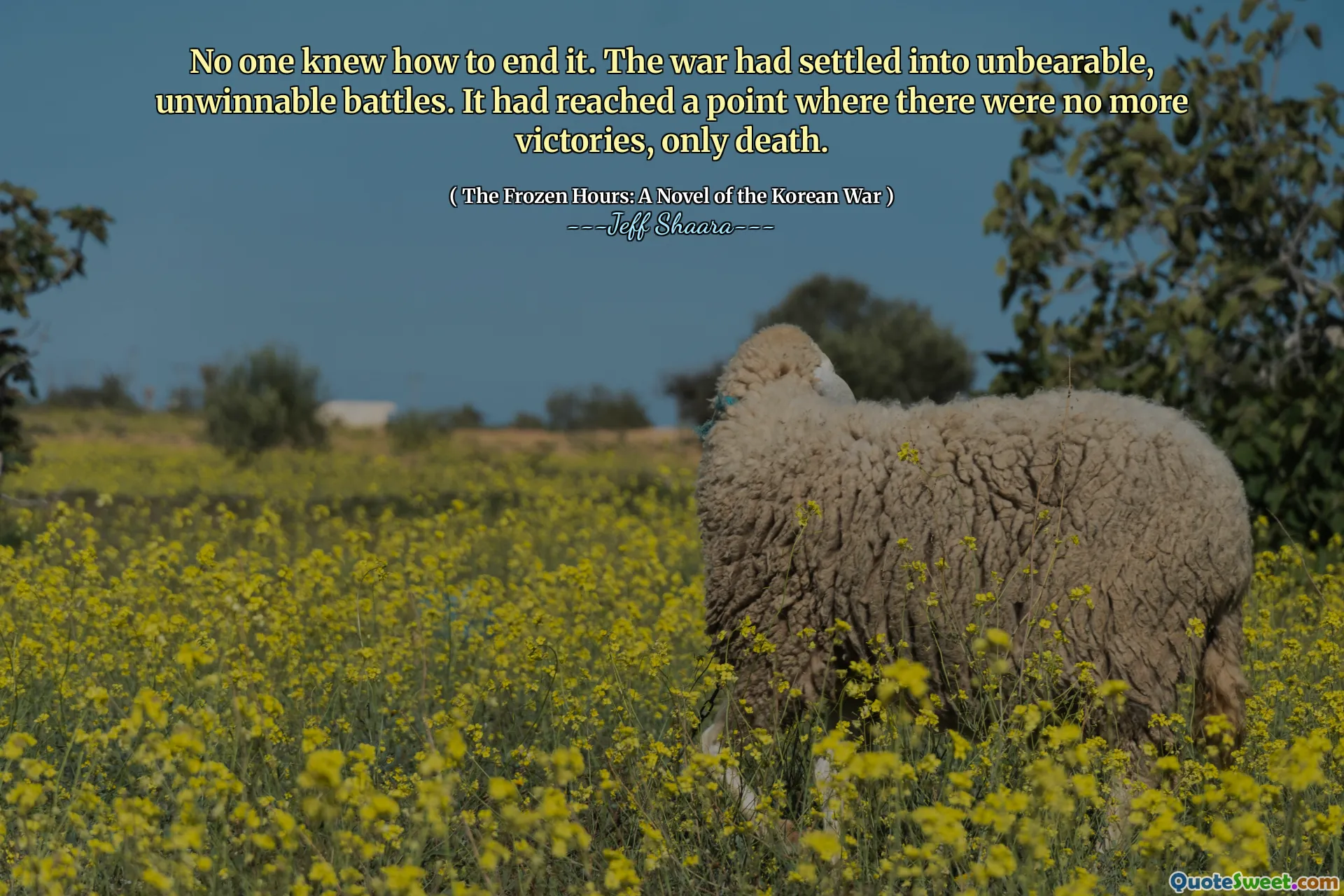
No one knew how to end it. The war had settled into unbearable, unwinnable battles. It had reached a point where there were no more victories, only death.
This quote captures the bleakness and futility that often afflicts prolonged conflicts, particularly wars that seem to drag on without resolution. It vividly illustrates the psychological and moral fatigue that war imposes on soldiers and societies alike. The sense that "no one knew how to end it" conveys a collective helplessness, where both leadership and fighters are trapped in an exhausting cycle. The phrase "unbearable, unwinnable battles" underscores that the conflict lost its original purpose or achievable objectives, deteriorating into mere survival rather than concrete victory. This highlights the devastating human cost—not just physical death, but the death of hope and meaning in warfare. It is a profound reflection on how wars can devolve into senseless, grinding endurance tests, forever altering the perception of heroism and honor. The final line, "there were no more victories, only death," strikes a particularly haunting note, reminding readers that in some conflicts, the losses outweigh any strategic or ideological gains, and the consequences are measured only in human suffering. The quote, drawn from Jeff Shaara's The Frozen Hours, a novel about the Korean War, resonates deeply with historical events where wars stagnated into attrition, reflecting universal themes of despair and the tragic costs of prolonged violence. It forces us to reckon with the true price of conflict and the critical need for diplomatic resolution before battles become endless and hollow.






